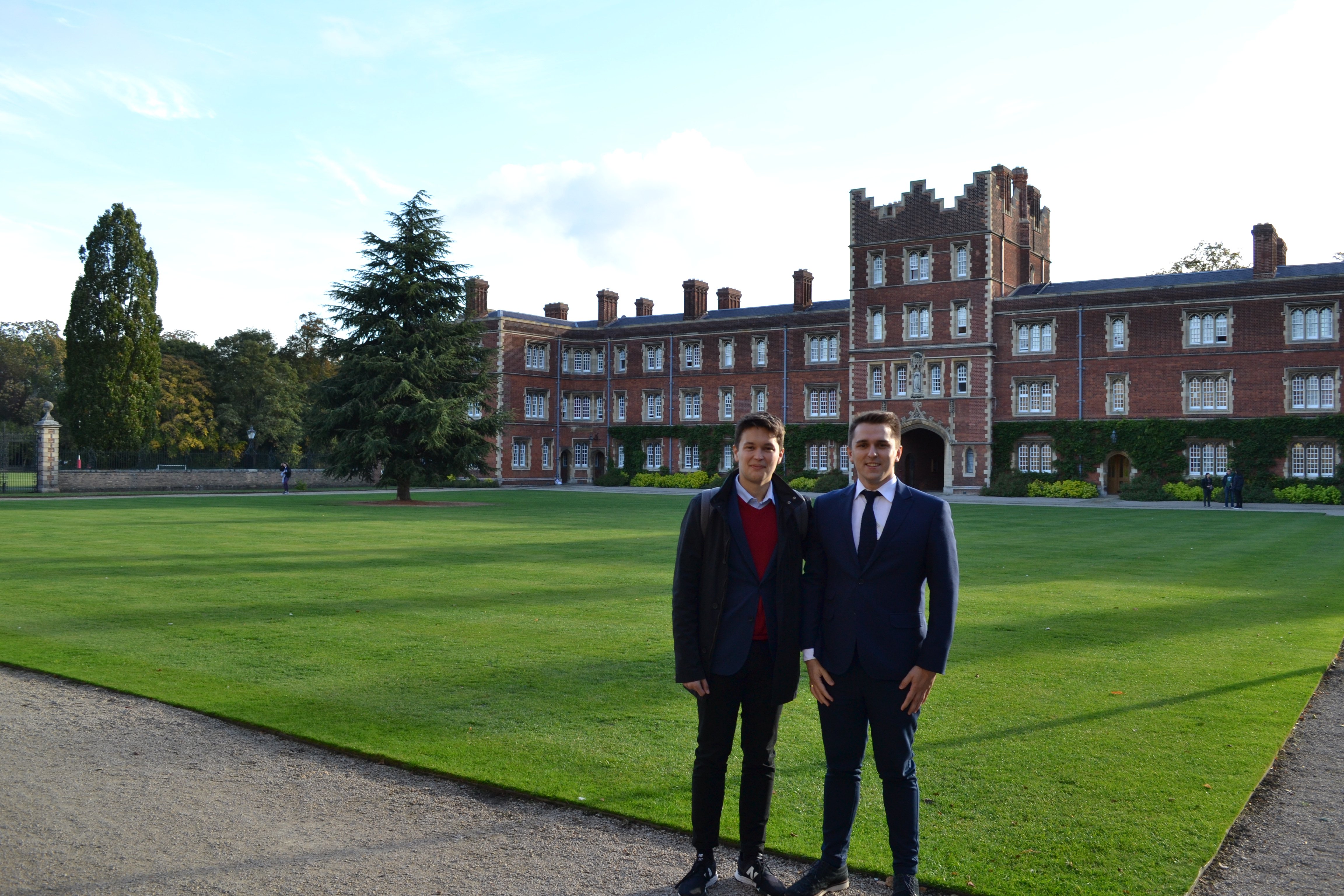First ignition of electro-mobility innovators
What could bring an architect and computer programmer together to realise a project which would change the face of the Polish electro-mobility sector? Even the most ambitious plans to create a new technological product are not impossible provided one has the appropriate knowledge, interdisciplinary contacts and a range of tools tested in workshop situations. Paweł and Mateusz have just finished the School of Pioneers PFR, and making use of the program’s energy, they are taking the next steps on the path to their determined target.
Business competencies for technical experts
Mateusz and Paweł met during a pilot edition of the PFR Pioneer School program. Mateusz graduated as an architect, but is professionally involved in designing means of transport. He runs his own design studio and has long been interested in emission-free vehicles. Paweł, meanwhile, is studying information technology in the Department of Basic Technical Problems of Wrocław’s Technical University, where he is focussed on issues of machine learning and theoretical IT. He has experimented with his own projects – together with a team he worked out an application that predicts delayed railway connections in Poland. They both heard of the School of Pioneers PFR through social media, and the unique proposition of activities stirred their interest.
The PFR School of Pioneers is an international educational program for future Polish technological entrepreneurs and visionaries, organised thanks to the collaboration of PFR, Allegro, TDJ, the PFR Foundation and University of Cambridge Enterprise. All of the workshops conducted in the framework of the initiative have a practical character and raised the matter of developing key business competencies, while teaching abilities of innovative thinking and building networks of cooperation. As Paweł says: – “The Pioneer school seemed to me to be an exceptional opportunity to broaden my business competencies thanks to knowledge gained from well-known, world experts and creative, ambitious visionaries from the world of IT, design and technology”. Mateusz adds that key competencies for his development were: “team-building skills, relations with business partners and the ability to negotiate key business matters”.
Recruitment to the program followed two stages. In the first, one had to fill in a registration form, send a CV and prepare a Personal Development Plan, i.e. a presentation which in a few slides would sum up one’s previous achievements, conducted projects, as well as strong and weak sides of the candidate and his/her plans and goals for the future. Next, from around 300 applications, 80 were chosen for the second stage. During this stage, each potential participant had the task of taking on a case study of business rivalry between Etsa and DaWanda, and during a tele-conference had to present and defend their way of thinking about necessary steps for the losing company. On the basis of these meetings, 50 people were selected to participate in the program.
Intensive, but satisfying
Each day of the program was begun with morning coffee in inspiring co-working spaces, such as Startberry or HubHub, at which the program participants conversed, shared their thoughts and verified each other’s ideas and progress in their realisations. Moments of relaxation passed by quickly, however, followed by carefully prepared lectures and workshops with a range of eminent figures from the Polish innovation ecosystem. Workshops conducted by representatives of the Program Council, including Natalia Hatalska and Aleksandra Przegalińska, as well as a former director of NASA – Aleksander Nawrocki, advice in the area of team building provided by Olaf Żylicz of the SWPS University, speed dating with the participation of mature start-ups – each week was full of similar inspiration and new challenges thrown at participants.
Paweł appreciates that “the program organisers made sure this time was worthwhile for us. The three weeks in Warsaw were really intense, but at the same time amazingly satisfying. There wasn’t a day in which I didn’t learn something new or didn’t put previously gained knowledge in order”.
All the participants spent the final week of the PFR Pioneers School at training sessions led by a team of University of Cambridge Enterprise, a university unit dedicated to commercialising results of scientific research. The pioneers worked in teams on selected concepts, developing a business model under the eye of experts and contacting entrepreneurs and scientists from Cambridge. The teams made use of the offer of local technological accelerators and the relaxed small-town atmosphere, facilitating concentration on the project. As Paweł emphasizes: – “The opportunity to perceive many issues from a new, broader perspective, which I gained through Cambridge Enterprise turned out to be especially valuable”. On the last day of the workshops, together with Mateusz they presented their project before a panel of experts.

The next step – gaining experience
Looking back at his participation in the program, Mateusz stresses the importance of well setting out one’s professional path by gaining practical experience. – “The program indicated to me a completely different path of development; I think a better one. It allowed me to perceive key aspects to which I had paid less attention earlier”. Both pioneers particularly emphasize the importance of the inter-disciplinary group of new acquaintances, in which they found each other as business partners.
The PFR School of Pioneers has convinced them that working together on a autonomic Polish electric car is within the range of possibility – especially if one combines various skills and new tools obtained thanks to the program. The new start-up is to solve transport problems faced by American and European cities, thanks to the combination of artificial intelligence, electro-mobility and principles of the sharing economy. They are already conducting discussions with a leading automotive corporation, with whom they will develop a Polish electric car. Based on the project, work will be conducted on the technology of autonomic driving. According to Paweł and Mateusz, the combination of energy generation using renewable energy sources, the electric car and energy-efficient homes will allow an ambitious, comprehensive energy transformation.
As Mateusz says: – “The popular ‘little Fiat’ got Poland driving. We will drive the country forward with totally new energy, giving it power for dynamic development in the future”. The School of Pioneers PFR was like the first ignition in this change.




